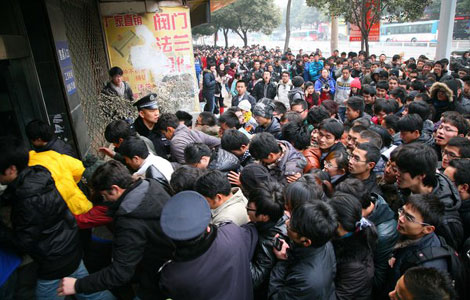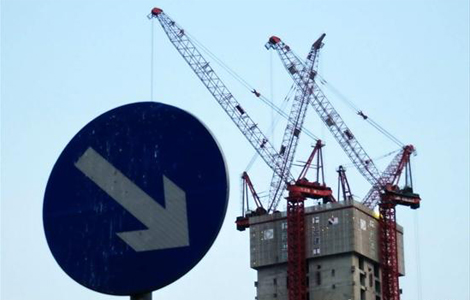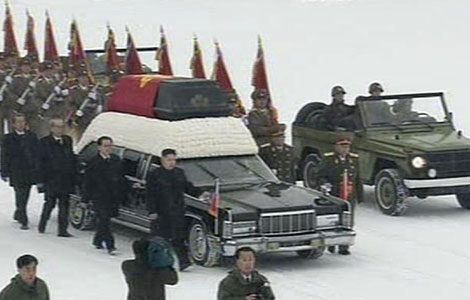|
|||||||||||
BEIJING - The safety of schools and school buses is now at the top of the agenda for China's education authority.
"The central government's fiscal investment on renovating school buildings has hit 28 billion yuan ($4.4 billion) in the last three years," Yuan Guiren, minister of education, said at a bimonthly session of the National People's Congress Standing Committee on Wednesday.
"Fiscal support from local governments has been more than 200 billion yuan in the past three years," he said.
|
 |
|
Xu Zhongmei, an officer at the Shuijiahu police station in Changfeng county, Anhui province, teaches students from a local kindergarten how to use the seat belt in a school bus on Monday. [Liu Junxi / Xinhua] |
The renovation projects were launched after the Sichuan earthquake in May 2008, during which 5,300 students died or went missing and 11,687 schools were destroyed or damaged.
Many parents alleged that the schools collapsed because of "tofu" construction, a term used to describe buildings that use substandard cement and have no steel bars for reinforcement.
Yuan also said that his ministry will accelerate the establishment of regulations for school bus safety.
The move comes after 19 preschoolers and two adults died on an overcrowded school bus on Nov 16.
In a more recent case, five students died after an overloaded minivan with mostly students aboard plunged into a valley in Southwest China's Yunnan province on Saturday.
On Monday, the Ministry of Industry and Information Technology published four draft national standards on school bus safety.
However, Zhang Yutang, a retired professor of education at Sichuan Normal University and an expert on student safety, said safer buses do not necessarily equate to better protection of students.
"I visited many schools in Sichuan. In most rural regions, the road is barely one meter wide, hardly enough space for a car to pass, not to mention buses," Zhang said.
"Without better road conditions and better payment for bus drivers, you can never prevent accidents," he said.
According to Zhang's research, almost all the bus drivers are part-time workers hired by rural schools and their incomes vary from 400 yuan to 800 yuan a month.
"All the drivers are thinking of delivering the students as soon as possible so that they can have more time to take another job. So they are not safety conscious at all," he said. "If they were paid 2,000 yuan a month, the situation would be quite different."
"As for the case in Yunnan, we have so many steep mountains and dangerous roads, so I believe repairing the roads is necessary," said Li Tianfeng, a professor at Yunnan Normal University.
"We have to raise the security awareness of students and teachers. Also, the teachers are facing great dangers too, because many of them travel through the precipitous mountains on their motorized bicycles every day," she said.
Wang Xuming, former spokesman of the Ministry of Education, said on his micro blog that the draft regulations on school buses was "one of the two issues that bring warmth" to his heart.
"One is that the government launched a project to provide nutritious meals to children in rural areas in western regions, the other is the regulations aiming to make school buses safer. Without making the children healthier and safer, it is meaningless to talk about education."
Related Stories
Measures to ensure school bus safety 2011-12-15 08:00
School bus safety rules set standards 2011-12-12 07:39
Deadly school bus crashes reveal growing pains 2011-12-13 19:50
School bus overturns in E China, casualties unknown 2011-12-12 11:24
Hot Topics
HIV/AIDS, Egypt protest, Thanksgiving, climate change, global economic recovery, home prices, high-speed railways, school bus safety, Libya situation, Weekly photos
Editor's Picks

|

|

|

|

|

|







